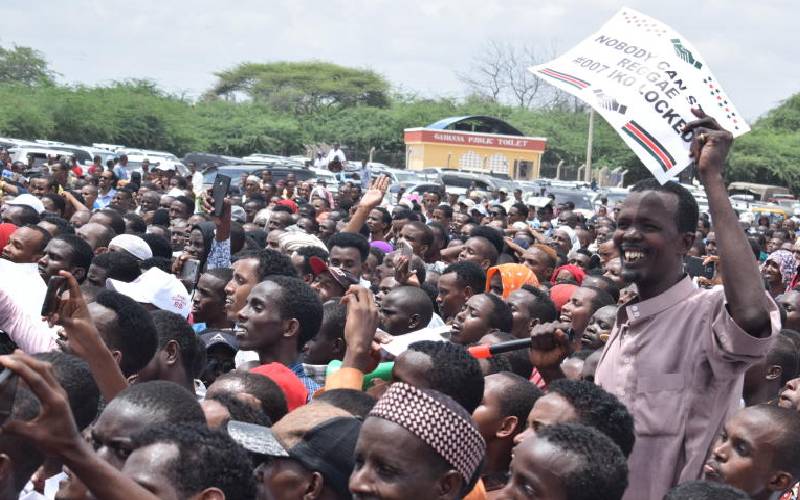×
The Standard e-Paper
Smart Minds Choose Us

Residents attend the BBI rally at Garissa primary on February 23, 2020.
Currently, there is a concerted effort by politicians to institutionalise economic populism ahead of the 2022 elections. Several have begun campaigning on problems defined by them rather than “the people”. As the election approaches, another swarm will emerge, telling us what matters to them and how their plan would fix all of our problems.